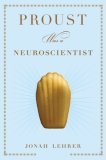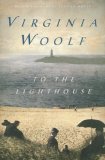After reading ‘Proust Was a Neuroscientist’
Written on November 22, 2007
 I have two personal “action items” as a result of reading Proust Was a Neuroscientist
I have two personal “action items” as a result of reading Proust Was a Neuroscientist. The first is to read Virginia Woolf for her insights into self and consciousness.
Here is an excerpt from the chapter on Virginia Woolf (p. 182):
But how do we endure? How does the self transcend the separateness of its attentive moments? How does a process become us? For Woolf, the answer was simple: the self is an illusion. This was her final view of the self. Although she began by trying to dismantle the stodgy nineteenth-century notion of consciousness, in which the self was treated like a “piece of furniture,” she ended up realizing that the self actually existed, if only as a slight of mind. Just as a novelist creates a narrative, a person creates a sense of being. The self is simply our work of art, a fiction created by the brain in order to make sense of its own disunity. In a world made of fragments, the self is our sole “theme, recurring, half remembered, half foreseen.” If it didn’t exist, then nothing would exist. We would be a brain full of characters, hopelessly searching for an author.

My second action item – based on the chapter on Stravinsky – is to listen to “difficult” or unfamiliar music. I’m not sure if this applies to other art forms besides music, but I was fascinated by the account of Stravinsky’s ‘Rite of Spring’ as “simulated madness” that the mind later learned to listen to – explained neuroscientifically by the release of dopamine in response to surprising sounds. (“New Sounds” from WNYC is a good source for contemporary new music. For “simulated madness” – maybe watching a David Lynch film like ‘Inland Empire’ provides a similar experience?)
Lehrer writes (p. 142-143): “If the art feels difficult, it is only because our neurons are stretching to understand it. The pain flows from the growth… If not for the difficulty of the avant-garde, we would worship nothing but that which we already know.”


